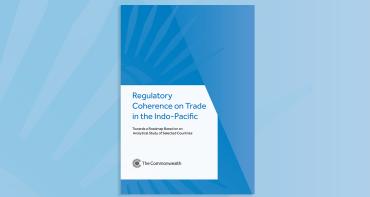A new Commonwealth survey shows lack of regulations around virtual currencies could be exacerbating the risks associated with them.
A new Commonwealth survey shows lack of regulations around virtual currencies could be exacerbating the risks associated with them. These include terrorism financing, money laundering and trade in illicit goods and services.
Research carried out in eight member countries indicates that legitimate use of virtual currencies is widespread across a spectrum of different industries ranging from selling handbags in Nigeria to providing plumbing services in New Zealand. But findings also demonstrate an absence of legal and regulatory frameworks is increasing the threat of criminal exploitation.
In efforts to develop more robust measures to manage these relatively new currencies, the Commonwealth Virtual Currencies Working Group will meet in London from 24-26 August. The group will review the survey and hear from a panel of global experts about the latest developments in the sector.
“Collaboration and knowledge sharing is key to counter the risks and maximise the benefits of this rapidly developing technology,” said Katalaina Sapolu, Director of the Commonwealth’s Rule of Law Division.
“The Commonwealth has a demonstrable track record in embracing technology to boost economic and social development. Emerging trends suggest these relatively new currencies could bring real benefits, such as mobile banking systems in developing countries and a significant reduction in transaction costs. It is vital, therefore, we put in place adequate safeguards to prevent criminal misuse while taking into account the Commonwealth’s varied economic landscape”, Ms Sapolu added.
Virtual currencies are digital representations of value that can be traded and exchanged between online communities. It is their function as an anonymised substitute for traditional currency to trade goods and services that provides their economic worth.
Criminal use of virtual currencies mainly takes place in areas of the dark web or the hidden web making it very difficult for investigating authorities to determine the extent of illegal activity and take necessary action.
“The emergence of the first cryptocurrency, Bitcoins, showed law enforcers that criminals were able to conduct anonymous financial transactions. But recently researchers have shown how a global record of these transactions can be analysed to reveal who lies behind what were once thought to be anonymous transactions. This gives law enforcers a tool with which to fight back”, said Professor Alan Woodward from the University of Surrey and advisor to Europol who will deliver a presentation at the meeting.
The survey shows the response from Commonwealth countries towards virtual currencies is mixed. In Bangladesh, for example, these transactions are illegal. Canada, on the other hand, recognises their legality and seeks to minimise the most high risk aspects while encouraging business innovation.
Virtual currencies do not have legal tender status in any jurisdiction. There are no internationally agreed standards or rules that can be applied to them. However, The Financial Action Task Force (FATF) released important guidelines in 2015 to address the associated risks.
Commonwealth Heads of Government identified cybercrime as a major obstacle to combatting the financing of terrorism and money laundering at their meeting in 2013.
During a consultation in February earlier this year, it was agreed the Commonwealth would set up a specialist group to develop technical guidance for member states on potential regulatory and legislative measures to effectively respond to virtual currencies.



